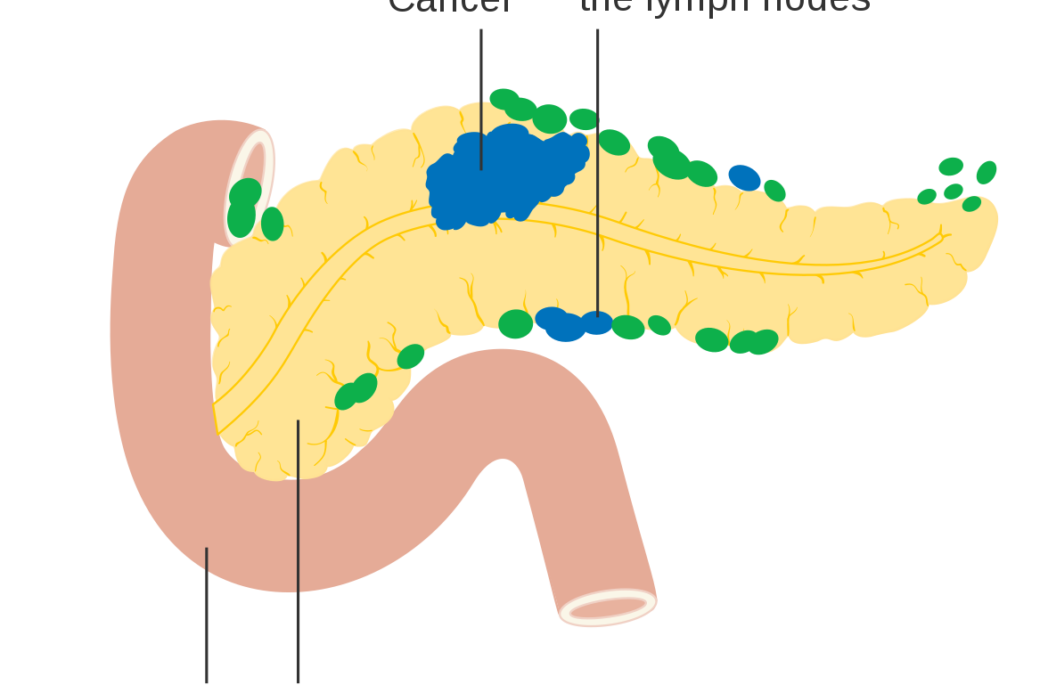Understanding Pancreatic Cancer

The pancreas is an organ it the abdomen horizontally positioned behind the lower part of the stomach. The primary role of the pancreas is a release of hormones that help manage blood sugar and enzymes to aid digestion.
What is Pancreatic Cancer?
Pancreatic cancer is a type of cancer that begins in the pancreas when cells start to grow out of control. The most prevalent type of pancreatic cancer is pancreatic adenocarcinoma.
The pancreas has two main types of cells, exocrine cells, and endocrine cells. The exocrine and endocrine cells of the pancreas develop different types of tumors.
If you were diagnosed with pancreatic cancer, it is vital to know whether it is exocrine cancer or endocrine cancer (Pancreatic Neuroendocrine Tumor), because these two types of pancreatic cancer have different causes and risk factors. They also have different signs and symptoms, require different treatments, and have different prognoses. Pancreatic Neuroendocrine Tumor (pNETs) is a less common type of pancreatic cancer.
Pancreatic Cancer Prevalence
According to the American Cancer Society, pancreatic cancer accounts for 3 percent of all cancers in the United States and about 7 percent of deaths caused by cancer. The estimates are that about 56,770 people in the US are diagnosed with pancreatic cancer in 2019.
Does Pancreatic Cancer Spread Quickly?
Pancreatic cancer has a tendency to spread silently before the doctors diagnose it, which makes it one of the deadliest cancer diagnoses. Pancreatic cancer usually spreads rapidly to adjoining tissues and organs.
If you have been diagnosed with pancreatic cancer or are close to someone who has, knowing what to expect can help you handle the diagnosis.
What Are the Warning Signs of Pancreatic Cancer?
Because of its tendency to spread without any symptoms before it is diagnosed, you can rarely detect pancreatic cancer in the early stages.
Signs and Symptoms of Exocrine Pancreatic Cancer
Unfortunately, by the time it causes symptoms, exocrine pancreatic cancer has usually already spread outside the pancreas. The main signs and symptoms of exocrine pancreatic cancer may include:
- A loss of appetite and weight loss
- Stomach or back pain
- Nausea and vomiting
- Yellowing of the eyes and skin due to the buildup of bilirubin also known as jaundice
- Gallbladder or liver enlargement
- Blood clots
- New-onset diabetes
- Fatty tissue anomalies
Signs and Symptoms of Pancreatic Neuroendocrine Tumors (pNETs)
Pancreatic Neuroendocrine Tumors often release excess hormones into the bloodstream. Some of the most common symptoms of pNETs include:
- Gastrinomas
- Somatostatinomas
- Insulinomas
- Glucagonomas
- VIPomas
- Palomas
- Carcinoid tumors
- Non-functioning neuroendocrine tumors
What is the #1 Cause of Pancreatic Cancer?
In most cases, it remains unclear what causes pancreatic cancer. However, cigarette smoking is the leading preventable cause of this disease. Research has also found that inherited gene mutations in some people may increase the risk of pancreatic cancer. Nevertheless, other factors such as obesity, gender, age, and workplace exposure to certain chemicals can increase the risk of this disease.
Prevention of Pancreatic Cancer
While there is no absolute way to prevent pancreatic cancer, there are such things you can do to lower the risk of getting this disease. Habits and lifestyle that include maintaining a healthy weight, no smoking, limiting alcohol intake, and exposure to certain chemicals in the workplace can promote overall wellbeing and reduce the risk of getting pancreatic cancer.
Who is Prone to Pancreatic Cancer?
It seems that the risk of developing pancreatic cancer increases with age. Ninety percent of pancreatic cancer patients are older than 55. In most cases, pancreatic cancer develops in people older than 45. However, the disease can be diagnosed in adults of any age.
What are the Stages of Pancreatic Cancer?
After the diagnosis of pancreatic cancer, doctors will use staging to determine if it has spread, and if so, how far. Staging is a way of describing the location of the tumor and where/if it has spread. Knowing the stage of pancreatic cancer helps the doctor decide on the type of treatment and helps predict a patient’s prognosis. To determine pancreatic cancer, doctors divide it into four categories depending on whether it can be removed with surgery and where it has spread. These four categories include:
- Resectable Pancreatic Cancer
Resectable pancreatic cancer can be surgically removed as there is no evidence that the tumor has spread to areas outside of the pancreas.
- Borderline Resectable
While the tumor may be difficult or impossible to remove surgically, chemo and radiotherapy may be able to shrink the tumor, which then doctors can remove.
- Locally Advanced
The tumor is still in the area around the pancreas, but it cannot be surgically removed because it has grown into surrounding organs, arteries, or veins. About 40 percent of patients are diagnosed with this stage of pancreatic cancer.
- Metastatic
The tumor has spread beyond the pancreas area and to other organs. Approximately 45 to 55 percent of patients are diagnosed with the metastatic stage.
Pancreatic Cancer Treatment
Pancreatic cancer treatment options may vary depending on the type and stage of the disease. The most common treatment options include surgery, radiation therapy, ablation or embolization treatments, chemotherapy, and pain control medications.
How Long Does a Person Live After Being Diagnosed with Pancreatic Cancer?
In cases of untreated advanced pancreatic cancer, the median survival is about 3 ½ months. With proper treatment, a person may live to about eight months. However, many people diagnosed with pancreatic cancer live much longer.
Can Drinking Cause Pancreatic Cancer?
Although drinking is not a direct cause of pancreatic cancer, it can set off pancreatitis, which is a risk factor for pancreatic cancer.
Does Coffee Cause Pancreatic Cancer?
Research has found that drinking coffee (both caffeinated and decaffeinated) and tea does not increase the risk of pancreatic cancer.
Can a Blood Test Reveal Pancreatic Cancer?
While a blood test may reveal an increase of certain substances associated with pancreatic cancer, it does not allow for early detection of the disease, because the levels of these chemicals don’t increase until the advanced stages of pancreatic cancer.
References:
- https://www.cancer.org/cancer/pancreatic-cancer/if-you-have-pancreatic-cancer.html
- Disruption of Cell Cycle Machinery in Pancreatic Cancer. http://cdn.intechopen.com/pdfs/33502/InTech-Disruption_of_cell_cycle_machinery_in_pancreatic_cancer.pdf
- 11 Warning Signs Of Pancreatic Cancer In Early Stage. https://www.positivemed.com/2015/12/07/early-symptoms-of-pancreatic-cancer/
- Pancreatic Cancer: Causes, Symptoms, Prognosis, and Treatments. https://www.healthline.com/health/pancreatic-cancer
- Pancreatic cancer: Difficult to diagnose, treat. https://www.detroitnews.com/story/news/local/oakland-county/2019/03/26/pancreatic-cancer-difficult-diagnose-treat/3278499002/
- How jaundice appears in cirrhosis – Answers. https://www.answers.com/Q/How_jaundice_appear_in_cirrhosis
- How Long Does A Person live After Being Diagnosed With …. https://www.epainassist.com/chest-pain/heart/how-long-does-a-person-live-after-being-diagnosed-with-cardiomyopathy
References:
- https://www.cancer.org/cancer/pancreatic-cancer/if-you-have-pancreatic-cancer.html
- Disruption of Cell Cycle Machinery in Pancreatic Cancer. http://cdn.intechopen.com/pdfs/33502/InTech-Disruption_of_cell_cycle_machinery_in_pancreatic_cancer.pdf
- 11 Warning Signs Of Pancreatic Cancer In Early Stage. https://www.positivemed.com/2015/12/07/early-symptoms-of-pancreatic-cancer/
- Pancreatic Cancer: Causes, Symptoms, Prognosis, and Treatments. https://www.healthline.com/health/pancreatic-cancer
- Pancreatic cancer: Difficult to diagnose, treat. https://www.detroitnews.com/story/news/local/oakland-county/2019/03/26/pancreatic-cancer-difficult-diagnose-treat/3278499002/
- How jaundice appears in cirrhosis – Answers. https://www.answers.com/Q/How_jaundice_appear_in_cirrhosis
- How Long Does A Person live After Being Diagnosed With …. https://www.epainassist.com/chest-pain/heart/how-long-does-a-person-live-after-being-diagnosed-with-cardiomyopathy



Leave a Comment